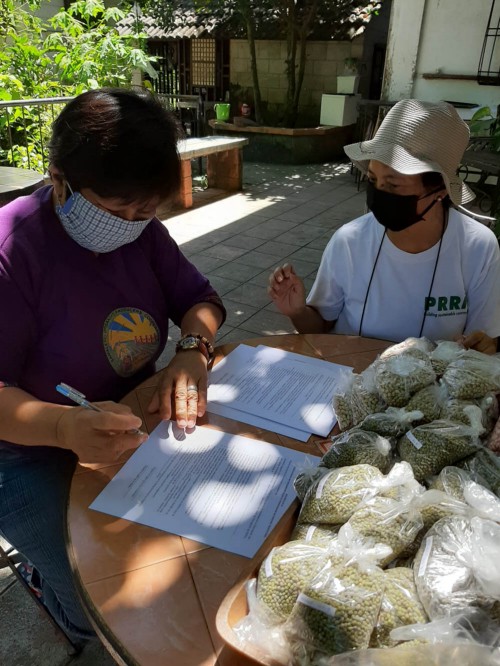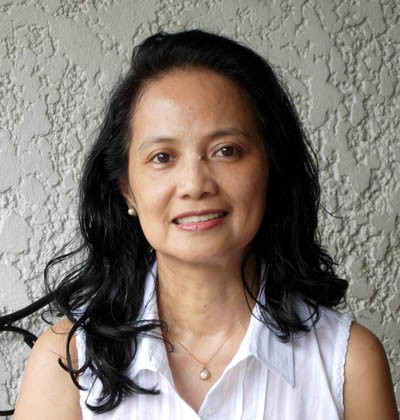I was in our farm house in Samal, Bataan when the Enhanced Community Quarantine (ECQ) for Luzon island was declared. This is where I usually spent my weekends before the COVID-19 pandemic. By March 18, the Ateneo de Manila University where the office of the Institute for Social Entrepreneurship in Asia (ISEA) is located declared a total lockdown. There was no other option but to declare a work-from-home arrangement among our staff and consultants. Since then, I have lived and worked from home in our farm house in Samal, Bataan.
Because of the ECQ, only one person in our household can be given a pass to go to market and buy groceries. I live in the farm with the support of a family serving as the caretaker of both our farm house and our farm. I gave the responsibility of going to market and buying groceries twice a week to the head of our caretaker-family. My life has been confined to our farm house, except for the two times I have had to go to the bank to withdraw money to support the purchase of our food and basic needs.
Being confined in our farm house, I set up the minimum requirements for working from home. My laptop and access to the internet through a wifi facility became critical to working from home. I managed to be updated about how ISEA members were responding to the pandemic through the internet. I followed with interest the World Fair Trade Organization-Asia’s efforts to mobilize its member Fair Trade Organizations in 10 countries, including the Philippines, to manufacture and distribute medical grade and “people’s masks”, and personal protective equipment (PPE) sets for medical practitioners. Inspired by this and other heart-warming initiatives of members, I initiated a COVID-19 Social Enterprise Response and Visioning Effort (SERVE).
As part of COVID-19 SERVE in the Philippines, I formed a team to undertake a Social Enterprise Action Research (SEAR) in partnership with the Poverty Reduction through Social Entrepreneurship (PRESENT) Coalition. I led the design of an online survey that the team has rolled out online. The team is also preparing to conduct key informant interviews using online platforms. Through this research, we hope to better understand the impact of COVID-19 on social enterprises and the poor they serve and to generate proposals on programs and policies that would effectively support social enterprises to recover and to build back better.
Beyond research, I connected with an ISEA member, the Philippine Rural Reconstruction Movement (PRRM), to co-create a food security initiative as part of COVID-19 SERVE. Together, we engaged the Department of Agriculture (DA) to secure open pollinated varieties of vegetable seeds — seeds that can be used for replanting as opposed to hybrid varieties that can only be planted once. This was part of an initiative to promote food security through community-based seed banking and sustainable agriculture in partnership with farmers’ cooperatives and social enterprises.
I volunteered to help by team leading the initiative involving the Samaleño Organiko Producers’ Cooperative (SOPCO). SOPCO is a cooperative of farmers and advocates of organic farming in the town of Samal where I have been living since the ECQ. I am a member of SOPCO and since I have been living in our farm for almost two months now, I found myself very much engaged.
Samal is a 4th class municipality and many of its residents are farmers. Before the ECQ, Samal was self-sufficient, or even had a surplus of rice. But it has always been dependent on other towns and provinces for its vegetables. I sat down and brainstormed with the Chairperson and key members of SOPCO in early April through meetings that observed the use of face masks and physical distancing. We agreed it would be a good idea to work towards enhancing Samal’s food security, by leading an effort to make the town self-sufficient with healthy organic vegetables.
SOPCO already had a growing initiative of manufacturing and selling organic fertilizers. We developed a plan to engage farmer cooperators and to distribute the seeds we were securing from the DA to these farmer-cooperators. The plan also included providing organic fertilizer support and a commitment to buy the farmer cooperators’ surplus produce at a premium price of five pesos (Php 5.00) more per kilo. The plan also included marketing the organic vegetables to Samal residents online, through door-to-door delivery and having an organic vegetable shop.

The seeds from the DA were delivered to SOPCO on the week of April 23. So we started the project with the first batch of farmer cooperators. I coordinated the engagement of farmer cooperators and the distribution of the seeds. I also became a farmer-cooperator, allocating a part of our farm to be planted to organic vegetables. I am being ably assisted by SOPCO’s organic farming technician and his family, who are concurrently the caretaker-family of our farm. I have directly participated in growing the seedlings, transplanting the seedlings in our vegetable plots and watering the vegetable plots. I look forward to harvesting the vegetables two months from now and contributing to the community-based seed bank of open pollinated varieties that SOPCO is setting up.
There are also a number of days a week when I am in meetings and seminars using various web-based applications. I have learned to use not only Skype but also Zoom and Google Meet. Last April 30, I was invited to deliver a live webinar on COVID-19 SERVE and our food security initiative by Catalyst 2030, a global movement of social entrepreneurs that I am a part of. I particularly welcome doing live webinars because they are helping me learn the art of engaging social entrepreneurship stakeholders under the new normal that we need to prepare for as the ECQ is lifted and beyond.



